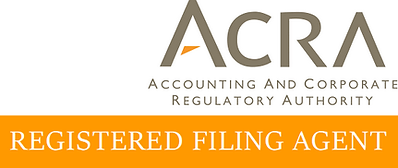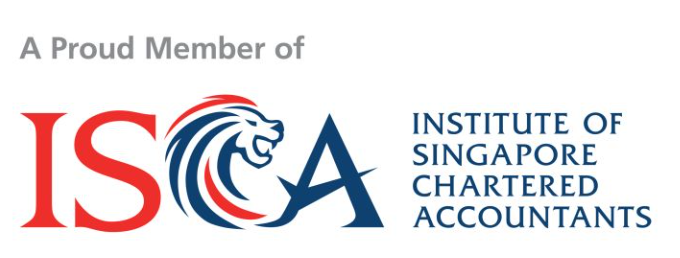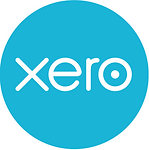Corporate Accounting Service
Cloud Accounting Software
Over the years. Singapore has been hailed as one of the best places to do business, thanks to its safe, business-friendly environment, economic and political stability, and ease of setting up foreign companies.
Given that Singapore is one of the best places to do business, the competition here is also increasing. In order to stay ahead, you need to ensure that all business operations are streamlined and run effectively so that you have ample time to focus on the core of your business development and revenue-generating areas.
If you are working alone or in a team of 2 to 3 people, then you may not be able to effectively manage all your internal operations, especially for startups and small businesses, which often have headaches in accounting and bookkeeping. If you are also facing a similar situation, you are advised to use cloud accounting solution such as QuickBooks or Xero.
Cloud accounting allows companies with no accounting background to easily and completely conduct accounting activities. With advanced cloud-based accounting software, you can easily prepare receipts, invoices, purchase orders and payment to better manage your cash flow.
Why choose us to setup cloud accounting solution for your company?
Cloud accounting offers numerous benefits to entities of all sizes and types. Here’s how it can help:
- Accessibility and Mobility: Cloud accounting allows you to access your financial data and perform accounting tasks from anywhere with an internet connection. This is especially useful for businesses with remote teams, multiple locations, or frequent travel requirements.
- Real-time Data: Cloud accounting provides real-time updates, ensuring that you’re always working with the latest financial information. This can help in making informed decisions quickly and adapting to changing circumstances.
- Collaboration: Cloud accounting facilitates collaboration among team members. accountants, and other stakeholders. Multiple users can work on the same data simultaneously, improving communication and workflow efficiency.
- Cost Efficiency: Cloud accounting eliminates the need for extensive IT infrastructure and maintenance costs.
Payroll Services
Payroll services refer to a range of services provided by companies or service providers to assist businesses in managing their employee compensation and payroll processes. These services aim to streamline and simplify the often complex task of paying employees accurately and ensuring compliance with tax and labor regulations. Here are some key aspects of payroll services:
Payroll Processing: Payroll service providers handle the computation of employee salaries, wages, bonuses, and deductions. This includes calculating gross pay, net pay, and withholding taxes.
Tax Compliance: Payroll services ensure that employers comply with tax regulations by deducting and remitting income taxes, Social Security, Medicare, and other applicable taxes to government authorities. They also assist in preparing and filing tax-related forms.
Direct Deposit and Paychecks: Payroll companies can facilitate direct deposit into employees’ bank accounts and handle the printing and distribution of physical paychecks if required.
Employee Benefits Administration: Some payroll services also manage employee benefits, including retirement plans, health insurance, and other deductions or contributions.
Time and Attendance Tracking: Many payroll services offer time and attendance tracking solutions to record employee work hours accurately for payroll processing.
Compliance with Labor Laws: Payroll providers help ensure that businesses adhere to labor laws and regulations regarding minimum wage, overtime, and other labor-related matters.
Record Keeping: Payroll companies maintain records of employee payroll data and provide access to historical payroll information for audit and compliance purposes.
Employee Self-Service: Some payroll service providers offer employee self-service portals that allow employees to access their pay stubs, tax forms, and update personal information.
Reporting: Payroll services generate reports for businesses, including payroll summaries, tax reports, and year-end reports required for tax filings.
HR and Benefits Consulting: Some payroll service providers offer human resources and benefits consulting services to help businesses with HR-related issues, policy development, and employee benefit programs.
Compliance Updates: Payroll providers stay informed about changes in tax laws and labor regulations and ensure that their clients’ payroll processes remain compliant.
Cost Savings: Outsourcing payroll can help businesses save money by reducing the need for in-house payroll staff and avoiding costly errors and penalties related to payroll and tax compliance.
Choosing the right payroll service provider is crucial for businesses to ensure accurate and compliant payroll processing while freeing up time and resources for core business activities. It can also provide peace of mind, knowing that payroll-related tasks are handled by experts who stay current with changing regulations.
Book-keeping
Book-keeping refers to the systematic process of recording and organizing all financial transactions of a business. It involves maintaining accurate and up-to-date records of income, expenses, assets, liabilities, and equity. This is essential for compliance with Singapore’s regulatory requirements, such as those set by the Accounting and Corporate Regulatory Authority (ACRA) and the Inland Revenue Authority of Singapore (IRAS).Book-keeping refers to the systematic process of recording and organizing all financial transactions of a business. It involves maintaining accurate and up-to-date records of income, expenses, assets, liabilities, and equity. This is essential for compliance with Singapore’s regulatory requirements, such as those set by the Accounting and Corporate Regulatory Authority (ACRA) and the Inland Revenue Authority of Singapore (IRAS).
Book-keeping in Singapore typically includes:
- Recording daily sales and purchases
- Managing invoices and receipts
- Tracking payments and receipts
- Maintaining ledgers and journals
- Reconciling bank statements
- Preparing financial reports for management and tax filing
Accurate book-keeping helps businesses monitor their financial health, ensures proper tax compliance, and provides necessary data for audits or financial planning.
If you need further consultation, feel free to CONTACT US at Astop Consultancy. Our professional accountants are here to guide you every step of the way!
Financial Statement Compilation
Financial statement compilation is the process of assembling financial data into formal financial statements—like the balance sheet, income statement, and cash flow statement—based on information provided by a company’s management.
Key points about financial statement compilation:
- It involves organizing and summarizing the company’s financial records without providing assurance or auditing the data.
- The accountant or firm compiles the financial information into a clear, standard format for internal use or external reporting.
- Unlike an audit or review, compilation does not involve verifying the accuracy or completeness of the information.
- It helps businesses present their financial position and performance clearly for stakeholders such as investors, lenders, or regulatory authorities.
- In short, compilation is a cost-effective way for businesses to have professional financial statements prepared based on their records, but without the detailed checks that come with audits or reviews.
- If you need further consultation, feel free to CONTACT US at Astop Consultancy. Our professional accountants are here to guide you every step of the way!
XBRL
XBRL stands for eXtensible Business Reporting Language. It’s a standardized digital language used for the electronic communication of business and financial data.
What does XBRL do?
It allows companies to prepare, publish, exchange, and analyze financial statements and other business reports in a consistent, machine-readable format.
XBRL tags each piece of financial data with standardized labels, making it easier for computers to understand and process the information automatically.
Why is XBRL important?
- It improves transparency and accuracy in financial reporting.
- It speeds up the review and analysis process for regulators, investors, and other stakeholders.
- Many regulatory authorities worldwide, including Singapore’s Accounting and Corporate Regulatory Authority (ACRA), require companies to file their financial statements in XBRL format.
In Singapore:
- Companies must file their financial statements with ACRA in XBRL format as part of compliance.
- This helps ACRA to efficiently process and analyze financial data submitted by companies.
- If you need further consultation, feel free to CONTACT US at Astop Consultancy. Our professional accountants are here to guide you every step of the way!
Group Consolidation
Group consolidation is the process of combining the financial statements of a parent company and its subsidiaries into a single set of financial statements. This provides a comprehensive view of the financial position and performance of the entire group as if it were one entity.
Key points about group consolidation:
- It eliminates intercompany transactions and balances (e.g., sales between subsidiaries) to avoid double counting.
- It aggregates assets, liabilities, income, and expenses of all entities within the group.
- It follows accounting standards (like IFRS or Singapore Financial Reporting Standards) to ensure consistency.
- The purpose is to give stakeholders a clear picture of the group’s overall financial health, rather than the financials of individual companies.
- Group consolidation is essential for corporate groups where a parent owns controlling interests in other companies.
If you need further consultation, feel free to CONTACT US at Astop Consultancy. Our professional accountants are here to guide you every step of the way!
Accreditation







Accreditation








